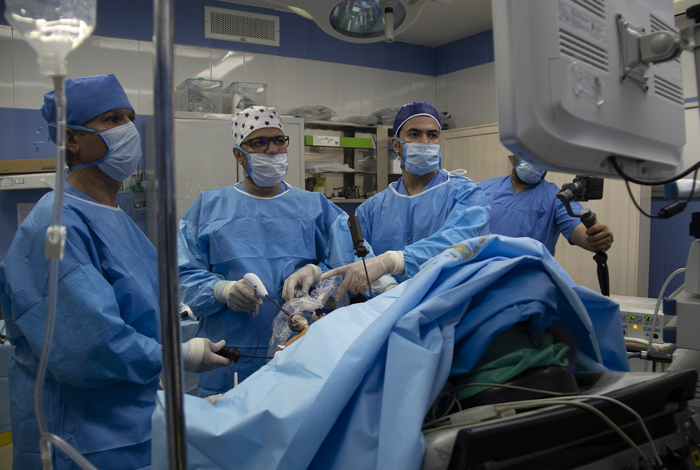Classic Bypass Surgery
Classic Bypass Surgery
Classical Bypass Surgery or gastric bypass has historically been the most popular treatment for obesity worldwide, or as Gold Standard puts it. The surgery quickly gained popularity in 2011 and became the top choice for obesity surgery in 2015.
Standard Obesity Surgery It may be said that other modern obesity surgeries are somehow compared to this method.In this method, in addition to limiting the volume in the stomach, the absorption rate is reduced due to the removal of the small intestine from the orbit.
Another advantage of this method is the complete improvement of reflux (return) of food from the stomach to the esophagus, and the reason for this is the separation of the bile duct from the rest of the gastrointestinal tract.
Dr. Noor Shafiee: As a standard surgery, I recommend this method to my dear clients, and if there is a special benefit for the person in the preoperative examinations, I suggest other surgeries.

The reasons for the superiority of classical bypass surgery in obesity surgery
Bypass surgery has the highest rate of weight loss among obesity surgeries.
Minimum return in the long run (1% to 3%).
In people who are petty and sweet-eating and sedentary, it works better than sleeve and other methods.
In the event of a leak, it can be controlled more easily and faster than a sleeve.
This operation is technically easily reversible.
The benefits of bypass surgery
However, the most obvious reasons why this method, that is, gastric bypass or classic bypass, is superior to other methods of obesity surgery include:
Accelerated weight loss in a way that allows the average person to lose 70% of their body weight during the first 18 months after obesity surgery;
The amount of food a person eats during the day and night decreases due to the reduction in the size of the stomach;
Less calories will be absorbed from food in the gut;
Type 2 diabetes improves or even disappears completely;
Medication may need to be limited to control high blood pressure or high cholesterol; This means that medications used to control blood pressure, such as metoral or losartan, or blood lipids such as atherostatin, should be minimized after a short period of time or discontinued with the advice of Dr. Abdolhosseini, a surgeon.
Significant weight loss leads to the regulation of the body’s hormones, including increased testosterone levels and improved metabolism;
Most studies show that 90% of patients lose at least 50% of their excess weight after surgery, and the success of losing weight is long-term;
By losing weight and reducing the dose or number of medications used for obesity-related illnesses, you can exercise. If you exercise regularly with a healthy diet, you can lose more weight;
Gaining more energy increases self-confidence and a better feeling in the person after gastric bypass surgery. Studies show that 95% of patients report an improvement in their quality of life within 1 year after surgery.

